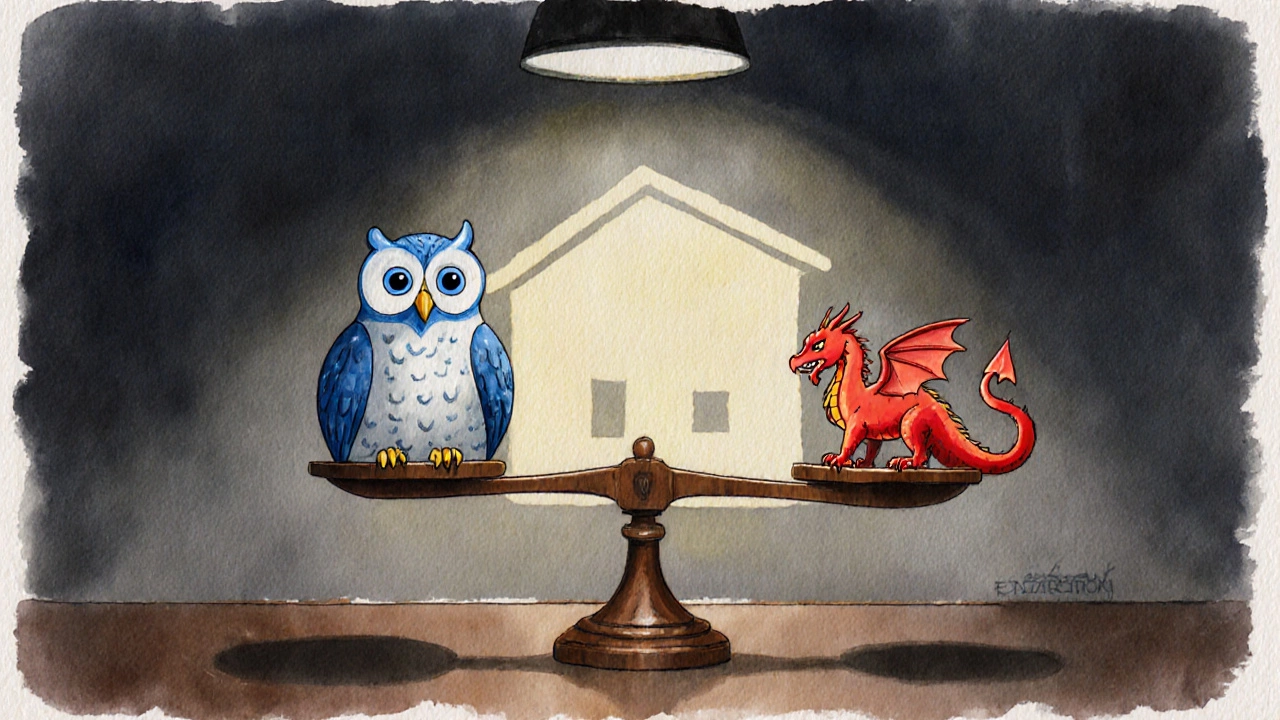Who Owns Zillow? 2025 Ownership Breakdown

Zillow Ownership Calculator
See what percentage of Zillow you would own based on your investment amount. Note: This is a hypothetical calculation based on a $100 share price.
Key Takeaways
- Co‑founders SpencerRascoff and RichBarton together hold less than 5% of Zillow’s stock.
- The five biggest institutional holders control roughly 28% of the company.
- BlackRock, Vanguard and State Street are the top three shareholders as of the latest 2024Form13F filing.
- ElliottManagement has become a notable activist investor, owning about 3.5% of shares.
- All ownership data is publicly available via the SEC’s EDGAR system and Zillow’s investor‑relations site.
If you’ve ever wondered who really pulls the strings behind the online real‑estate giant Zillow, you’re not alone. Zillow ownership is a mix of founders, institutional investors, and a handful of activist funds that together shape the company’s strategy. In this guide we’ll break down the major shareholders, explain how voting power works, and point you to the resources you need for the most up‑to‑date numbers.
Founders and Early Insiders
When Zillow launched in 2006, it was the brainchild of two seasoned entrepreneurs. Spencer Rascoff is a real‑estate technology executive who served as Zillow’s CEO from 2010 to 2019 and later returned as Executive Chairman. Rich Barton is a co‑founder of multiple internet companies, including Expedia, and currently leads Zillow Group as Executive Chairman. Even after stepping down from day‑to‑day roles, both retain sizable insider stakes through direct holdings and trusts.
According to Zillow’s 2024 proxy statement, Rascoff owned approximately 1.2% of the outstanding shares, while Barton held around 2.0%. Together they control just under 4% of voting power, far less than the institutional cohort but enough to stay on the board and influence key decisions.

Top Institutional Shareholders (2025 Snapshot)
Institutional investors dominate Zillow’s equity base. The most recent 13F filings, covering the quarter ending June302025, show the following five firms as the biggest owners:
| Shareholder | Ownership % | Investor type | Voting rights* |
|---|---|---|---|
| BlackRock global asset manager with $10trillion AUM | 6.3% | Institutional | ≈6.3% |
| Vanguard Group world’s largest mutual‑fund provider | 5.9% | Institutional | ≈5.9% |
| State Street Corporation major custodian and ETF issuer | 5.2% | Institutional | ≈5.2% |
| Fidelity Investments large brokerage and mutual‑fund house | 4.8% | Institutional | ≈4.8% |
| Elliott Management activist hedge fund led by PaulSinger | 3.5% | Activist | ≈3.5% |
*Voting rights align with share percentage unless proxy votes are delegated.
Collectively, these five firms own about 28% of Zillow’s equity, giving them significant sway over board nominations, executive compensation, and major strategic moves such as mergers or spin‑offs.
How Voting Power Is Distributed
Zillow’s shares are all classified as "common" with one vote per share, so ownership percentage translates directly to voting influence. However, a few nuances matter:
- Proxy voting. Large funds often delegate votes to proxy advisers (e.g., ISS or Glass Lewis). Their recommendations can shape how the aggregate institutional vote swings on a given proposal.
- Shareholder agreements. Some insiders have “lock‑up” agreements that restrict selling for a set period, effectively stabilizing their voting bloc.
- Dual‑class proposals. While Zillow has no dual‑class structure today, any future change would require shareholder approval, making the block held by the top five institutions a decisive factor.
Because the founders together hold under 5%, any attempt to push through a major strategic shift without institutional backing would likely fail at the shareholder vote.
Recent Ownership Activity
In late 2023, Elliott Management disclosed a 2.1% stake and began urging Zillow to consider a spin‑off of its Mortgage Marketplace segment. By mid‑2024, the fund increased its holding to 3.5% and secured a seat on the board as an “independent director.” While the spin‑off never materialized, the episode highlighted how activist investors can leverage even modest stakes to influence corporate direction.
BlackRock and Vanguard, on the other hand, have largely taken a “hands‑off” approach, voting in line with management on most routine matters. Their primary focus is long‑term capital appreciation, and they have publicly reiterated confidence in Zillow’s “technology‑driven growth model.”

Where to Find the Latest Ownership Data
All of Zillow’s share‑ownership information is filed with the United States Securities and Exchange Commission (SEC). The most authoritative sources are:
- Form 13F. Institutional managers with over $100million in assets must submit quarterly reports listing all equity holdings. You can download the PDFs from the SEC’s EDGAR database.
- Proxy Statement (DEF 14A). Filed annually, it discloses insider holdings, compensation, and a detailed breakdown of ownership percentages.
- Zillow Investor Relations. The company’s website hosts a “Shareholder Information” page that aggregates the latest filings and provides a quick‑view chart of top owners.
For real‑time monitoring, services like WhaleAlert or Bloomberg’s “Ownership” tool send alerts when large trades cross the 1% threshold.
Implications for Investors and Home‑Buyers
Understanding who owns Zillow helps you gauge the company’s strategic stability. A shareholder base dominated by long‑term asset managers (BlackRock, Vanguard, State Street) usually signals steady governance, while activist presence (Elliott) may indicate occasional push‑for‑change episodes.
For home‑buyers, this matters because major strategic shifts-like a potential sale of the “Zillow Offers” arm-could affect platform features, pricing, and the availability of instant‑sale services. Keeping an eye on the voting patterns of the top five owners can give you a heads‑up on any upcoming changes.
Frequently Asked Questions
Who are Zillow’s biggest shareholders?
As of the June2025 13F filing, the top five owners are BlackRock (6.3%), Vanguard Group (5.9%), State Street Corporation (5.2%), Fidelity Investments (4.8%), and Elliott Management (3.5%). Together they hold about 28% of the stock.
Do the founders still control Zillow?
SpencerRascoff and RichBarton together own just under 4% of outstanding shares. While they remain on the board and can influence strategy, they do not have controlling voting power.
How can I see Zillow’s most recent ownership filings?
Visit the SEC’s EDGAR portal and search for “Zillow Group, Inc.” to download the latest Form13F, DEF 14A, and 10‑K reports. Zillow’s own investor‑relations page also aggregates these documents.
What impact does Elliott Management have on Zillow?
Elliott is an activist hedge fund that currently holds about 3.5% of the company. It uses its board seat to push for operational efficiencies and has previously advocated for a spin‑off of certain business units.
Why does institutional ownership matter for everyday users?
Large institutional owners influence major corporate decisions that can affect product features, pricing, and the overall direction of the platform. Knowing who they are helps you anticipate potential changes that could impact your home‑search experience.









Write a comment